As a child, I never imagined becoming a writer. It never occurred to me even in a dream as we didn’t know any writer. I grew up around a semi-literate father, an illiterate mother, factory workers like my father and teachers who asked us to memorize everything. I remember in grade nine, I wrote a story as part of a co-curricular competition in the school. The topic given by the teacher was: Perils of false Praise. I do not remember what I wrote but I got the first prize. No second prize was given because no one in the class wrote anything. The short story competition was abandoned after that. Someone must have liked my story because at the end of the year, I was given two books — Raag Darbari by Shrilal Shukla and Netaji Kahin by Manohar Shyam Joshi — as prize. I enjoyed Raag Darbari more because it opened in a funny way with the lines, “Edge of the city. After that began the sea of Indian villages. A truck stood right there. Looking at the truck one could be sure that it was born only to rape the roads.”
These lines stuck with me forever and led me to the idea of what we know as the ‘literary novel’. Before that I had only heard pulp fiction by Ved Prakash Sharma as that used be to my father’s favorite. I say heard because every night my father used to read the novel to my mother who could not read. Of course, he edited out the steamy scenes and inappropriate language. He also had strict instructions for us that we couldn’t defy: not to touch his books. After Raag Darbari, I read whatever I could find in the small school library: Shivani is one author I remember clearly as the library had quite a few books by her. I can’t recall the names of all the books, but here was a writer who introduced me to women who could make their own decisions, unlike the world I lived in. My love of books notwithstanding, I followed the same path as any other student who scored good marks in the school. I took sciences, finished college, searched for jobs and landed up in the Indian capital, Delhi, where I became a journalist by chance.
My first real encounter with world literature took place in those years when my editor asked me to read the book Things Fall Apart. The reference came up because of a remark I made while discussing an agitation by Adivasis in Jharkhand. My editor called me in his office where he asked, “Have you read Chinua Achebe?” I had not even heard of this name then.
Things Fall Apart was a turning point as I had never read such a heartfelt novel in my life. How was it possible that someone from Jharkhand would feel that a story set in a distant village of Nigeria could be his own! Okonkwo became my hero for a while. No Longer at Ease, Arrow of God followed and then A Man of the People was suggested by my editor. I wanted to read all the books by Achebe; eventually I did. Achebe was followed by V.S. Naipaul, Salman Rushdie, and others who were big names in the Indian literary scene. At times I felt at a loss when I wasn’t able to follow the complicated literary tropes or references of Rushdie or Vikram Seth. I was looking for the simplicity and power of Things Fall Apart as a reader. Around that time, I happened to pick up a book in Old Delhi’s Sunday book market. I opened the first page of the book and got stuck. It was Catcher in the Rye by J.D. Salinger. I had not heard of him before, but I kept reading the novel on my way back in the bus. By that evening when I finished the book, everything and everyone looked ‘phony’ to me. Though I wasn’t a teenager, I wanted to talk like Caulfield and walk like him. Salinger was followed by Hemingway, but his novels were not from my world. I did not look for how to make sentences because I had no plans to write. I was a reader.
I do not remember when or how I was introduced to Gabriel Garcia Marquez. May be the same editor who saw me reading all the books he recommended, gave me a thin book, Chronicle of a Death foretold. As a reader I liked the book, but the nuances of its storytelling and form I understood much later when I started writing on my own. Chronicle was followed by News of a Kidnapping, and No One Writes to a Colonel and finally the epic, One Hundred Years of Solitude. Despite being confused by names such as Arcadios and Aurelianos, the book cast a spell on me. I had no idea about Magical-Realism at that point. Who cared? May be writers did. When I finished the book, I wanted to write the history of my grandparents, and I had no idea who they were and how they lived. I longed for a personal historical family story. For the first time, I wrote a long story and shared it with my editor. He read it and told me a week later, “Put this under your pillow. After a year, read it again.” By the time I re-read what I wrote, I had moved to a new office for work and was translating Naipaul for fun. I had read Naipaul’s A House for Mr. Biswas and his non-fiction works, Area of Darkness and India: A Million Mutinies. I was as impressed by his observations and the way he wrote but confused by the connections he was making in his non-fiction writings. Now I know why he wrote what he wrote. His post-colonial biases and derogatory manner while writing about the Third World are much clearer to me now.
The book I translated has been termed as one of his weakest books by his biographer Patrick French. It was A Turn in the South, a reportage on the American South. Despite being a weak book, it taught me several things. Translations makes you see a writer in a much more meaningful way by allowing you to immerse yourself in their play/use of words, metaphors, observations, references, connections, and forms. A translator gets the opportunity to think like the author, to get under his skin, to write like him. It took me a year to finish the translation, and by that time, I wanted to write my own book. I started rereading A Bend in the River and In a Free State by Naipaul and other books from a fresh perspective. With the new knowledge I’d gathered as a translator I started making notes of any reporting assignment I was sent on. I maintained a notebook, not for reporting but for my own references — an idea, I soon found-out, prescribed by Ryszard Kapuzinski who kept a red and a black notebook, one for reporting and the other for writing his book.
Achebe and Naipaul, two starkly different authors have shaped me in some ways, but in last few years as I’ve started writing and published a novel for the BYNGE app and a memoir on JNU on the Notnul App, I’m reading contemporary authors such as Amitava Kumar, Teju Cole, Ben Okri, and legends such as J.M. Coetzee and Jorge Luis Borges whose experiments with forms and storytelling makes me think about/contemplate on my own writing all the time. While writing my first drafts, I try not to read any fiction because I only sit down to write when I have a concrete set-up in my mind. How I am going to tell the story is something I work on during the writing. Once I am in the editing process, I read and reread books suggested by my peers so I can scavenge a word, a style, or a trope. As an instance, I’m now rereading Milan Kundera’s The Unbearable Lightness of Being primarily because his book is being discussed by some of my characters. I read Tin Drum because my professor asked me to read it after going through my first draft. Things Fall Apart still sits on my desk, a book I can read anytime, from any page. Similarly, for inspiration and taking my mind off, I go to Fernando Pessoa’s The Book of Disquiet, reading any page randomly. In between new books sneak in if they are recommended by trustworthy friends or written on issues that interests me or at times for reviews. I try to read the masters like Kafka or Proust, or Roberto Calasso who bring out new meanings every time one reads them. Another book I keep on my table (whether I read it or not, I occasionally read a page) is The Vintage Book of Contemporary World Poetry to find solace whenever I feel burdened or get entangled in the webs I create while writing.
BIO NOTE
Jey Sushil is the author of the novel, House-Husband ki Diary and a memoir on Jawaharlal Nehru University named JNU Anant, JNU Katha Ananta. He has translated V.S. Naipaul for Penguin and is currently pursuing PhD in Comparative Literature in the International Writer’s Track at Washington University in St. Louis. He can be reached at jey.sushil@gmail.com

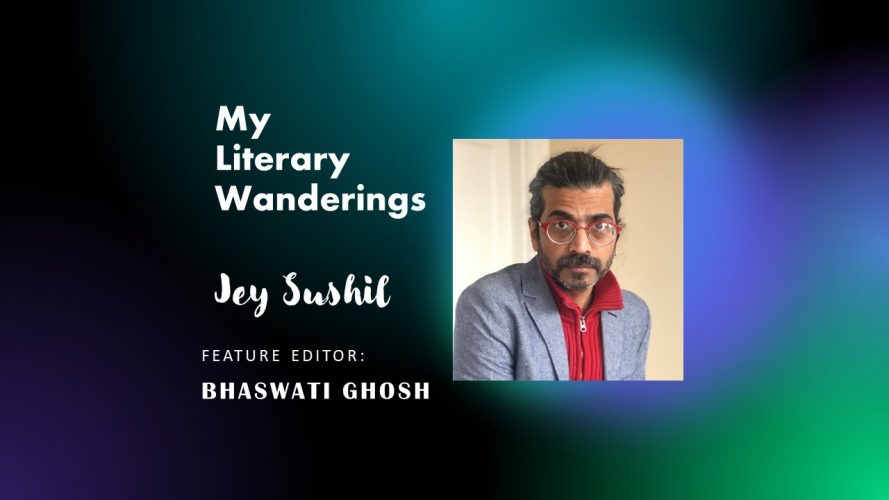


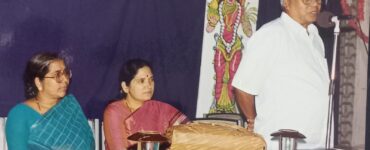
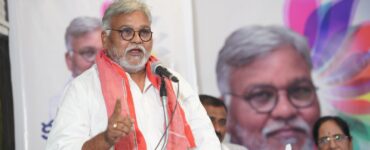
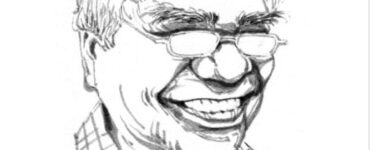
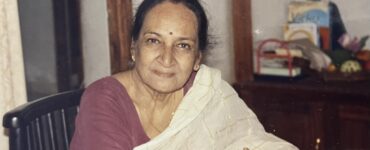

An interesting journey of reading to which most of us can relate. Happy reading!Hoping to read your works someday.